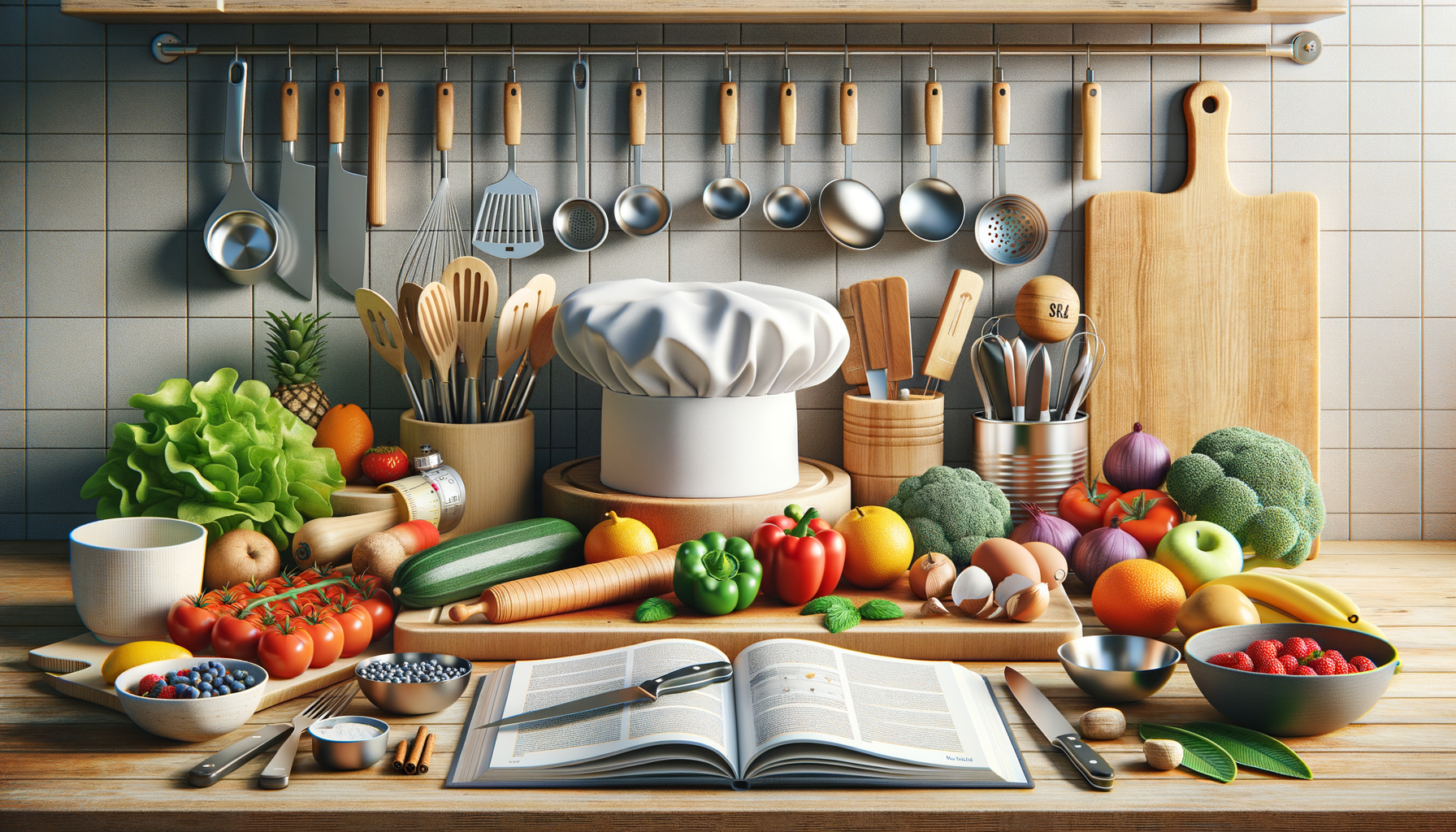Beginner Cooking? Start With These 5 Fundamentals From Culinary School
Simple, repeatable, and practical—these habits make everyday cooking easier.

Introduction to Cooking Fundamentals
Cooking is an essential life skill that not only nourishes the body but also provides an opportunity to express creativity and culture. Whether you’re a novice in the kitchen or looking to refine your culinary skills, understanding the basics is crucial. This article delves into fundamental cooking techniques that are simple, repeatable, and practical—these habits make everyday cooking easier. By mastering these techniques, you’ll be well on your way to preparing delicious meals with confidence.
Understanding Knife Skills
One of the most essential skills in the kitchen is proper knife handling. Mastering knife skills is not just about efficiency; it’s about safety and precision. A well-honed knife can dramatically improve your cooking experience. Start by learning how to hold a knife correctly. The grip should be firm, with your thumb and index finger pinching the blade near the handle while the rest of your fingers wrap around the handle. This grip provides control and reduces the risk of accidents.
Practice basic cuts such as dicing, slicing, and julienning. Begin with softer vegetables like tomatoes or cucumbers and gradually move to harder ones like carrots and potatoes. Consistency in size ensures even cooking, which is vital in achieving the desired texture and flavor. Remember, a sharp knife is safer than a dull one, as it requires less force and is less likely to slip.
- Invest in a good quality chef’s knife.
- Keep your knives sharp with regular honing and occasional professional sharpening.
- Use a cutting board that is stable and large enough to accommodate your tasks.
The Art of Seasoning
Seasoning is the cornerstone of flavorful cooking. It’s more than just adding salt and pepper; it’s about enhancing the natural flavors of your ingredients. Understanding when and how to season can turn a bland dish into a memorable meal. Start by learning the basic rule: season as you go. This means adding a little seasoning at each stage of cooking to build layers of flavor.
Experiment with different herbs and spices to discover combinations that complement your dishes. For instance, basil and oregano pair beautifully with tomatoes, while rosemary and thyme enhance roasted meats. Additionally, consider the balance of flavors: sweet, salty, sour, and bitter. A touch of acidity, like a squeeze of lemon or a splash of vinegar, can brighten a dish and elevate its taste profile.
- Use fresh herbs when possible for a more vibrant flavor.
- Taste as you cook to adjust seasoning levels.
- Understand the potency of different spices and use them judiciously.
Mastering Basic Cooking Techniques
Familiarizing yourself with basic cooking techniques is key to expanding your culinary repertoire. Techniques such as sautéing, roasting, and boiling form the foundation of many recipes. Sautéing involves cooking food quickly in a small amount of oil over high heat. This method is perfect for vegetables and thin cuts of meat, allowing them to develop a rich, caramelized flavor.
Roasting, on the other hand, uses dry heat to cook food evenly, often resulting in a crispy exterior and tender interior. It’s an excellent technique for meats and root vegetables. Boiling is a straightforward method ideal for cooking pasta, grains, and blanching vegetables. Each technique requires attention to detail, such as controlling temperature and timing, to achieve the desired results.
- Preheat your oven before roasting to ensure even cooking.
- Use a thermometer to check the doneness of meats.
- Blanch vegetables in boiling water, then shock them in ice water to preserve color and texture.
Conclusion: Building Confidence in the Kitchen
Embarking on a culinary journey requires patience, practice, and a willingness to learn. By focusing on these fundamental cooking skills, you lay a solid foundation that will support your growth as a cook. Remember, cooking is an art and a science, and every meal is an opportunity to improve and explore new flavors. Whether you’re preparing a simple weeknight dinner or experimenting with a new recipe, these techniques will serve you well. As you gain confidence, you’ll find that cooking becomes not just a necessity, but a rewarding and enjoyable part of your daily routine.